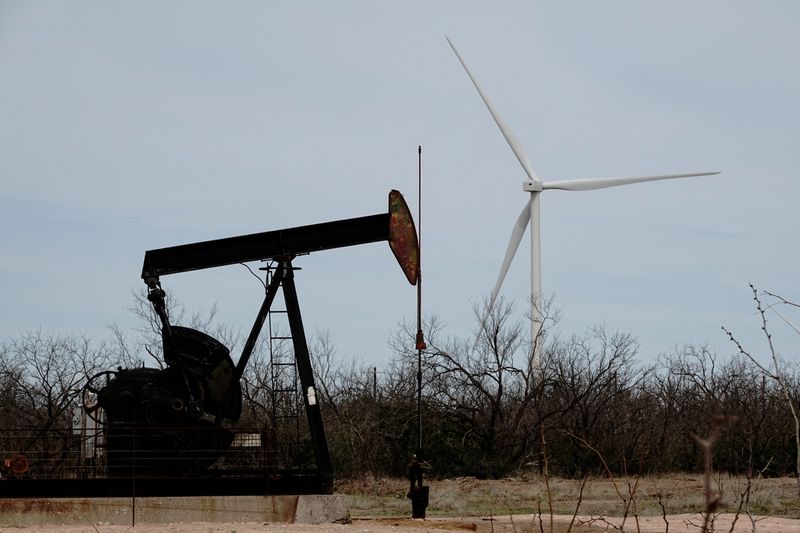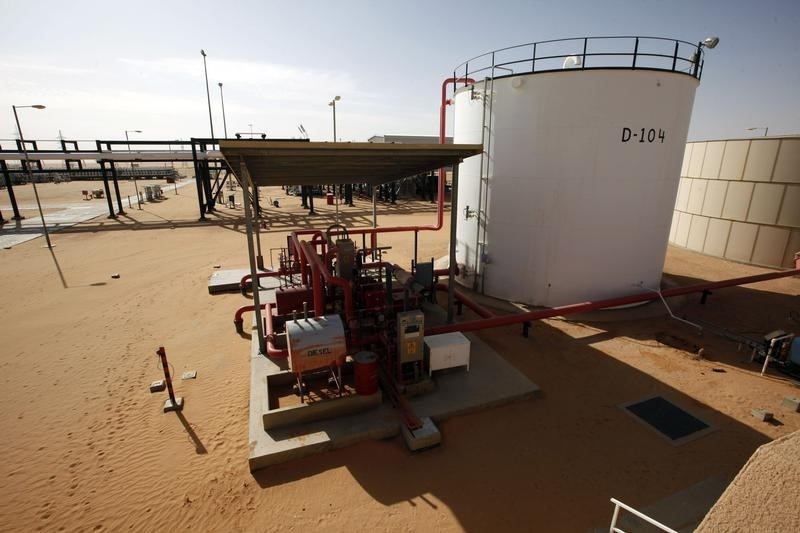(Reuters) – Republican Donald Trump and Democrat Kamala Harris have a few things in common when it comes to U.S. energy policy: Both say they want to expand production and keep prices low for consumers.
The key difference is that Harris says she wants to do this in a way that favors clean energy technologies that are crucial to the fight against climate change, while Trump would do this by rolling back green regulations that ban oil and gas drilling and coal mining hinders.
That contrast has come to define the American political debate over energy and climate in recent years, and voters will face it again as they prepare to go to the polls next Tuesday to choose their next president.
The stakes are enormous for global climate efforts, which scientists say are already falling short in addressing the rate and extent of global warming, and which would take a further blow if the world’s largest historic emitter abandons its efforts to would stop cleaning up.
Here are details on Harris and Trump’s proposed energy and climate policies:
‘ENERGY DOMINANCE’
The US has become the world’s largest oil and gas producer in recent years thanks to a boom in drilling in fields such as the Permian Basin beneath Texas and New Mexico.
This happened under Democratic President Joe Biden’s watch even as he tried to advance the nation’s most ambitious climate agenda, which included historic subsidies for solar, wind and other clean energy technologies, as well as regulations to curb greenhouse gas pollution.
Trump’s campaign says Trump paved the way for the boom by cutting red tape during his term in the White House. It has been argued that Trump could increase US dominance in fossil fuel production in a second term by rolling back Biden’s climate initiatives.
Harris, on the other hand, says high oil and gas production will benefit America’s energy transition by keeping consumer prices low at a time when the country is investing in a shift to lower-emissions energy sources.
She has also said she no longer supports a ban on fracking, the drilling technology that has unlocked much of new U.S. manufacturing, a reversal from her position during her 2020 run for the White House.
INFLATION REDUCTION ACT
Trump has said he would “revoke all unspent funds” under the Inflation Reduction Act, the Biden-Harris administration’s signature climate law.
The 2022 law includes hundreds of billions of dollars in subsidies for electric vehicles, solar and wind power and other clean energy technologies and has spurred massive investments in domestic manufacturing in those industries.
Any change to the law would require an act of Congress, and several Republican lawmakers have expressed support for keeping it, or parts of it. Many of Trump’s allies benefit from the IRA through their investments in clean energy technologies.
Harris supports the IRA and has said her government would continue investing in clean energy if she won the election.
PARIS AGREEMENT
During his 2017-2021 term as US president, Trump withdrew the US from the Paris Agreement, an international pact to combat climate change, arguing it was unnecessary and put the country at a competitive disadvantage compared to China.
Trump’s campaign said he would do it again if he wins.
Harris would keep Washington in the deal, which Biden quickly rejoined in 2021.
THE GRID
Trump’s campaign has said the Biden-Harris administration’s efforts to support electric vehicle adoption and ultimately curb fossil fuel use pose a risk to the nation’s power grid at a time of rising electricity demand . It promised changes that would ease the licensing of new power plants.
In April, Biden’s Environmental Protection Agency finalized rules against pollution from power plants, an industry responsible for nearly 25% of U.S. carbon emissions. Over the next decade, the rules will effectively require coal-fired power plants and new natural gas-fired generators to capture emissions before they reach the atmosphere.
In a September 5 speech, Trump denounced the rule, saying it set the stage “for a catastrophic energy shortage that will make inflation much worse.”
“I will immediately issue a National Emergency Declaration to achieve a dramatic increase in domestic energy supplies,” Trump said in the speech. “With these sweeping authorities, we will smash through every bureaucratic hurdle to grant swift approvals for new drilling, new pipelines, new refineries and new power plants and reactors.”
Harris’ campaign has also pledged to speed up permitting, but mainly for projects with little or no emissions.
“A Harris-Walz administration will do this by continuing to invest in a thriving clean energy economy and helping realize the full potential of those investments by cutting red tape so that clean energy projects can be completed quickly and efficiently in a way that protects our environment and public health,” according to her campaign website.
Trump also opposes U.S. auto emissions rules announced in March, placing them among a group of Biden’s green initiatives that he says are distorting markets, driving up prices and limiting consumer choice.
Trump has also pledged to end the offshore wind industry, which is already struggling under the weight of high costs and local resistance to projects. The policies differ from those of his first administration, which supported the technology.
Harris supports both offshore wind energy and electric vehicles.
LIQUEFIED NATURAL GAS
The Biden-Harris administration in January froze new export licenses for liquefied natural gas (LNG) to study its impact on the environment, a move this election year that satisfied green groups and voters.

If Harris wins, she will likely be tasked with wrapping up the pause and incorporating any new recommendations from the promised review, which the administration says will come out after the vote.
Trump has said he would immediately lift the freeze, while Harris’ campaign has said its approach to LNG will be guided by the outcome of the review.


